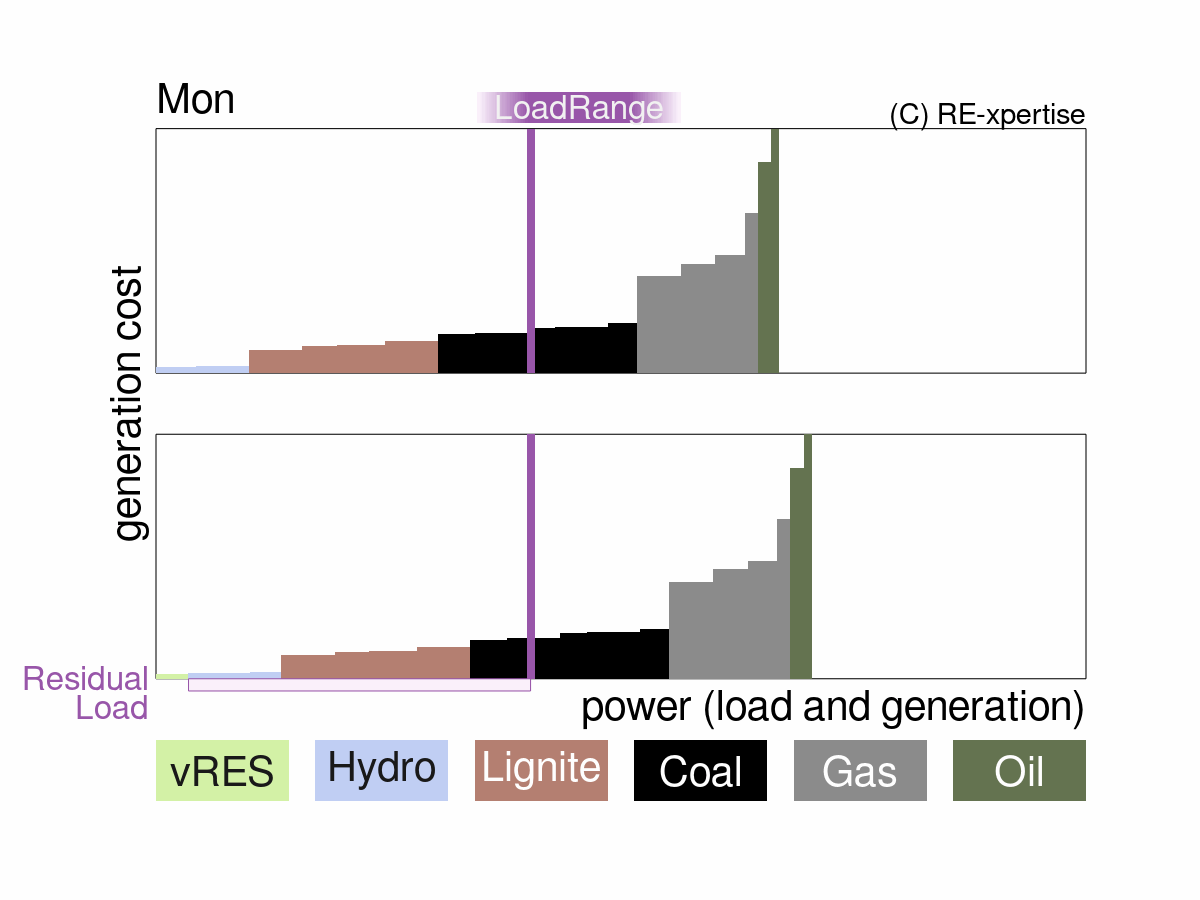What is the point?
Obviously, this is non-technical, but it affects system operation.
Once a wind turbine or a PV plant is installed, there are no extra costs associated with generation.
This is different with fossil fuelled power plants: you have to buy coal or gas in order to generate.
Fuel costs strongly influence the cost of electricity.
Why is this important?
In an
economic dispatch, power plants are called,
starting from the cheapest units to the most expensive one, just until the load is met (see upper part of animation below).
With their zero marginal costs, vRES are always at the beginning of the merit order.
Whenever the sun is shining or the wind is blowing, they shift the whole bidding ladder (see lower part of animation below).
Plants with higher marginal costs are pushed out and, in the long run, make fewer profitable hours.
This effect of vRES supply ignores other system requirements, for example allocation of
ancillary services.
Hence, with growing vRES penetration, power plant dispatch may deviate from
the simple 'energy only' merit order.
This, in turn, may restrict vRES dispatch.
 Important
Important: this has nothing to do with priority access or support schemes. It is simply economy.
Of course, the animation above is a rude simplification, completely ignoring regulation and policy frameworks.
You may get an impression of the complex real-world interactions having a look at
this (German) tool.
Where is it relevant? - Country characteristics
The principle applies everywhere. The challenge is with the operators of plants which now regularly are pushed out,
because of their higher marginal costs.
Countries with large coal or nuclear capacities will face more related challenges than those with much hydro or gas.
Hydro is also at the beginning of the merit order.
These capacities will be affected only when substantial progress has been made (transformation Phase 3).
Gas is at the end of the merit order anyways. Even without vRES these plants are subject to cycling operation.
The technology is perfectly suited for these conditions.
When is it relevant? - Stage of development
With growing vRES penetration, nuclear and coal more and more frequently will run into part load or even are offline temporarily.
For these technologies these conditions are difficult from a technical and economical perspective.
When this becomes relevant depends on the
composition and technology mix of a country's power plant fleet.
Obviously, there may be significant differences between countries in the same phase.
 Important: this has nothing to do with priority access or support schemes. It is simply economy.
Important: this has nothing to do with priority access or support schemes. It is simply economy.